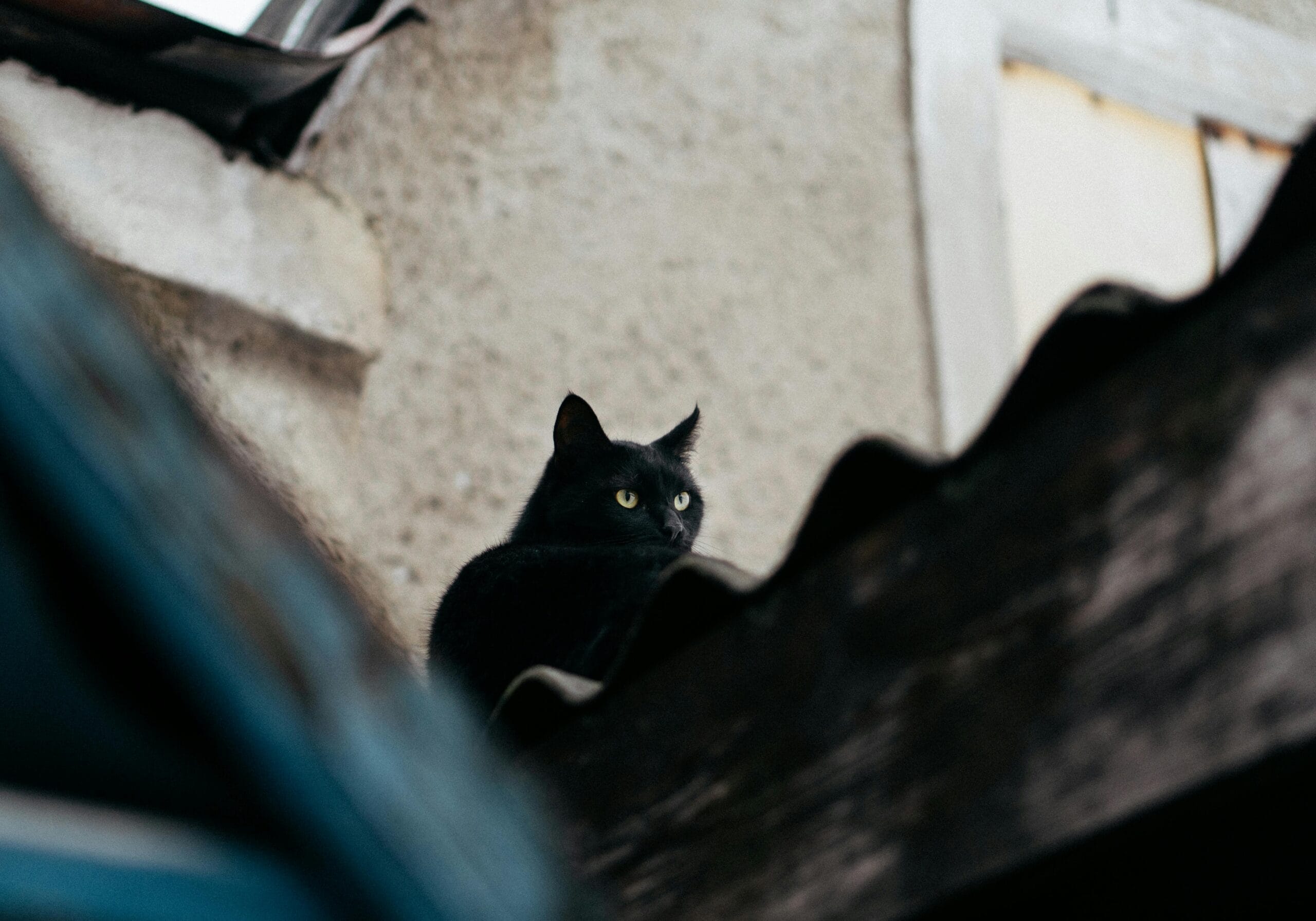How Do You Know If A Kitten Has Rabies? Spot kitten rabies symptoms early! Learn about rabies in kittens treatment & crucial steps to protect your furry friend. Read now!
How Do You Know If A Kitten Has Rabies?
Rabies is a deadly viral disease that affects the central nervous system of mammals, including cats. While rare in developed countries thanks to widespread vaccination programs, it’s crucial to understand the signs of kitten rabies symptoms and know what to do if you suspect your kitten might be infected. This comprehensive guide will help you recognize the signs of rabies in kittens and understand the importance of immediate veterinary care.
Understanding Rabies in Kittens
Rabies is transmitted through the saliva of an infected animal, typically through a bite. However, scratches from a rabid animal can also potentially transmit the virus, particularly if the wounds are deep. Young kittens, especially those who might venture outdoors before being fully vaccinated (perhaps a kitten found wandering alone and you’re wondering how to catch a stray kitten; consider reading our guide on how to catch a stray kitten), are particularly vulnerable because their immune systems are still developing. The incubation period – the time between infection and the onset of symptoms – can vary, making early detection challenging. While you may have wondered can you touch newborn kittens, remember that caution is paramount when dealing with unknown animals.
Recognizing Kitten Rabies Symptoms
The symptoms of rabies can be subtle in the early stages and often mimic other illnesses, making diagnosis difficult. It’s vital to be aware of both the early and later stages of the disease. It’s important to note that not all kittens will exhibit all symptoms.
Early Stage Symptoms:
In the initial stage, kitten rabies symptoms may be vague and easily missed. These early signs can include:
- Changes in behavior: Increased aggression or unusual fearfulness, hiding more than usual, uncharacteristic shyness or restlessness.
- Loss of appetite: A sudden decrease in food intake is a significant warning sign.
- Fever: A slight fever may be present, although this is not always the case.
- Changes in vocalization: Excessive meowing, or unusually quiet behavior.
Later Stage Symptoms:
As the disease progresses, the symptoms become more severe and unmistakable:
- Excessive drooling (hypersalivation): This is a hallmark symptom.
- Difficulty swallowing (dysphagia): The kitten may have trouble eating or drinking.
- Weakness and paralysis: This often begins in the face and mouth, then spreads to the rest of the body.
- Seizures: These can be severe and life-threatening.
- Ataxia (loss of coordination): The kitten may stagger or have trouble walking.
- Aggressive behavior: While some kittens become unusually fearful, others become extremely aggressive and bite readily, furthering the potential spread of the virus.
- Paralysis: In later stages, paralysis will progress, eventually leading to respiratory failure and death.
If you notice any of these signs in your kitten, particularly if you suspect a possible exposure (perhaps you found them wandering and you’re wondering how long can kittens be left alone without supervision), it’s imperative to seek immediate veterinary attention. Delaying treatment significantly reduces the chances of survival.
Rabies in Kittens Treatment
Unfortunately, there is no cure for rabies once clinical symptoms appear. The disease is almost always fatal. However, rabies in kittens treatment focuses on supportive care to manage symptoms and increase comfort until the disease runs its course. This can include hydration, pain management, and supportive respiratory care.
The most crucial aspect of dealing with a suspected case is prevention. Prompt veterinary attention is essential. Your vet will likely conduct a thorough physical examination and may order diagnostic tests. While a definitive diagnosis often requires a post-mortem examination of brain tissue, swift action based on observed symptoms is critical.
Prevention is Key
Preventing rabies in kittens is far more effective than treating it. This involves responsible pet ownership and taking preventative measures:
- Vaccination: Ensure your kitten receives timely rabies vaccinations according to your veterinarian’s recommendations. This is the most effective way to protect your pet.
- Avoid contact with wild animals: Supervise your kitten closely, especially when outdoors, to prevent interaction with potentially rabid animals. If you’re concerned about preparing your home for a new kitten, make sure you read our guide on how to kitten-proof your home to ensure a safe environment.
- Supervision: Keep a close eye on your kitten, especially if you’ve recently adopted them or if they spend time outside. Early detection significantly improves the likelihood of successful intervention, even if a cure isn’t possible.
- Report any suspected rabid animal: If you see an animal exhibiting suspicious behaviour, contact your local animal control or health department immediately. This helps prevent further spread of the virus.
When Do You Need to Seek Veterinary Care?
Any unusual behavior or symptom in your kitten should be promptly evaluated by a veterinarian. Don’t hesitate to seek professional medical advice if your kitten shows any of the symptoms described above, especially if there’s a possibility of exposure to a wild animal or a known rabid animal. Early diagnosis, even without a confirmed rabies diagnosis, might help your veterinarian provide supportive care and improve your kitten’s quality of life until the end.
Additional Resources
For more detailed information on rabies and its prevention, you can consult the following authoritative sources:
- Centers for Disease Control and Prevention (CDC) – The CDC website provides comprehensive information on rabies prevention, diagnosis, and treatment.
- World Health Organization (WHO) – The WHO offers global perspectives on rabies prevention and control.
Understanding the signs of rabies in kittens is critical for responsible pet ownership. While rabies is thankfully uncommon in many areas, knowing how to recognize the symptoms and react quickly is essential. By taking preventative measures and seeking immediate veterinary care when necessary, you can help protect your beloved kitten and prevent the spread of this deadly disease. Remember, early detection is crucial. If you’ve recently acquired a kitten and wonder when do kittens become cats, remember that responsible care, including vaccination, begins immediately.
Share Your Experience
Have you ever encountered a situation where you suspected rabies in your kitten or another pet? Share your experiences and advice in the comments below. Your insights can help other cat owners stay informed and protect their beloved companions from this potentially fatal disease. Let’s discuss your experiences with kitten rabies symptoms, rabies in kittens treatment, and how to best protect your furry friends!

- Q: How do you know if a kitten has rabies?
A: Rabies in kittens presents with various symptoms, often including behavioral changes like aggression, excessive fear, or unusual tameness. Other signs can be excessive drooling, difficulty swallowing, paralysis, and seizures. However, early stages can be subtle, making diagnosis challenging. Kitten rabies symptoms can vary, so immediate veterinary attention is crucial if you suspect rabies.
- Q: What are the early signs of rabies in a kitten?
A: Early kitten rabies symptoms can be misleading and resemble other illnesses. Look for subtle changes in behavior, such as lethargy, loss of appetite, or a change in vocalization. These early signs often progress rapidly.
- Q: My kitten is acting strangely, could it be rabies?
A: Unusual behavior is a significant indicator, but not definitive proof of rabies. A sudden change in temperament, such as uncharacteristic aggression or excessive fearfulness, warrants immediate veterinary examination. Remember, numerous other illnesses can cause behavioral changes in kittens. Only a vet can diagnose rabies.
- Q: Is there a specific test for rabies in kittens?
A: Diagnosing rabies definitively requires laboratory testing of brain tissue. Your vet will assess the kitten’s symptoms and history, possibly taking samples if they suspect rabies. There’s no readily available test for live kittens.
- Q: How is rabies in kittens treated?
A: Unfortunately, once clinical signs of rabies appear, rabies in kittens treatment is usually unsuccessful. The disease is almost always fatal. The focus is on preventing human exposure through post-exposure prophylaxis (PEP).
- Q: How can I prevent my kitten from getting rabies?
A: The best prevention is vaccination. Ensure your kitten receives the appropriate rabies vaccine as recommended by your veterinarian. Keep your kitten indoors to avoid contact with wild animals, and monitor for any potential bites or scratches from other animals.
- Q: My kitten was bitten by a stray cat; should I be worried about rabies?
A: Yes, this is cause for concern. Seek immediate veterinary care for your kitten. Your vet can assess the risk and determine the need for post-exposure prophylaxis (PEP) for both your kitten and yourself.
- Q: Are there different symptoms of rabies in kittens compared to adult cats?
A: While the core symptoms are similar, the presentation can vary. In kittens, the progression can be rapid, and behavioral changes might be more pronounced than in adult cats. The disease’s progression can be faster in young animals.
- Q: What should I do if I suspect my kitten has rabies?
A: Immediately contact your veterinarian or animal control. Do not handle the kitten without appropriate protective gear. Your vet will advise on the next steps, which might involve isolating the kitten and potentially sending samples for testing.
- Q: Is rabies in kittens common?
A: Rabies is relatively uncommon in kittens in areas with effective vaccination programs for domestic animals. However, in regions with higher populations of unvaccinated animals or wildlife, the risk increases significantly. How do you know if a kitten has rabies? Early intervention is key to protect both the kitten and humans.

How Do You Know If A Kitten Has Rabies?
Rabies is a deadly viral disease affecting the central nervous system, and unfortunately, kittens can contract it. Early detection is crucial, as rabies is almost always fatal once symptoms appear. However, it’s important to remember that many behaviors in kittens can be easily mistaken for rabies symptoms. Therefore, it’s essential to understand the true signs and seek veterinary advice immediately if you suspect anything.
Unlike common misconceptions, a rabid kitten won’t necessarily be aggressively foaming at the mouth and excessively snarling. Initial symptoms can be subtle and might include changes in behavior, such as unusual shyness or aggression, a change in vocalization, or excessive drooling. They may also appear lethargic, weak, or lose their appetite. Later stages may involve paralysis, difficulty swallowing, seizures, and finally, coma.
If you’ve found a stray kitten, learning how to safely catch it is important to assess its health. See our guide on how to catch a stray kitten for helpful tips. Remember, even handling a seemingly healthy stray can put you at risk if it’s infected.
Never attempt to handle a kitten showing any of these unusual symptoms. Instead, contact your local animal control or veterinary services immediately. Early intervention is key. If you’re bringing a new kitten home, make sure to kitten-proof your home to prevent accidents, but also be aware of potential illnesses.
Rabies is transmitted through saliva, typically via a bite. Less frequently, it can spread through scratches or contact with mucous membranes. Therefore, avoiding direct contact with any kitten showing suspicious symptoms is crucial. It’s important to remember that while kittens are adorable, they are still animals and their behavior can be unpredictable. They go through significant changes as they grow; learning when do kittens become cats can give you a better understanding of their development, but it won’t tell you if they’re sick.
If you’re considering adopting a newborn kitten, remember that proper care is essential for their survival and health. Learn more about handling newborn kittens. And if you have a kitten, plan your day accordingly. Know how long you can leave a kitten alone to avoid stress and possible health complications.
Disclaimer: This information is for educational purposes only and should not be considered medical advice. Always consult with a veterinarian if you suspect your kitten has rabies or any other illness.

How Do You Know If A Kitten Has Rabies,kitten rabies symptoms,rabies in kittens treatment